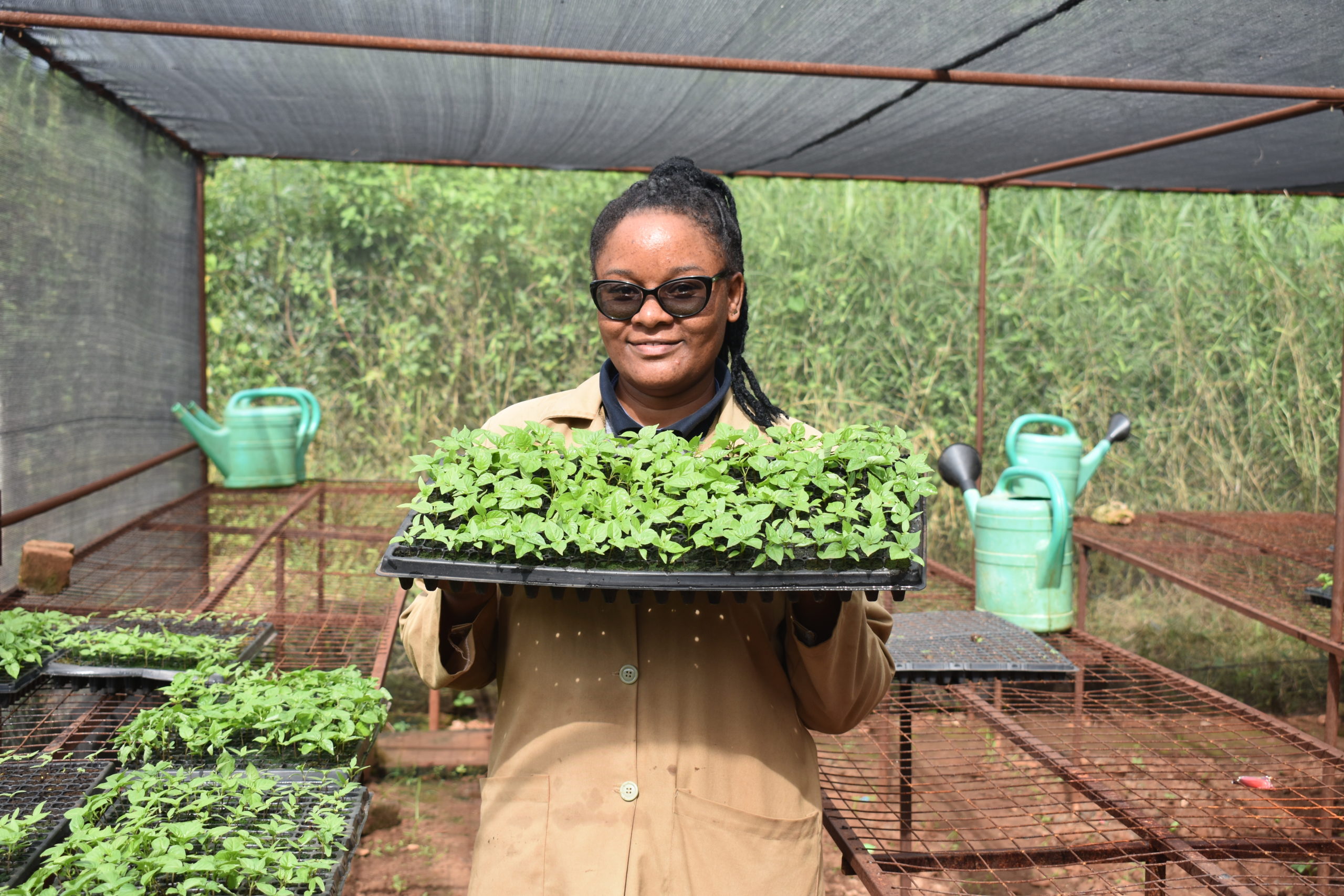Tanzanian women and youth are harvesting hope as well as crops
Story

Donatila is heartened by the growth she’s seeing in Tanzania – growth in crops; growth in agricultural and business skills; and growth in the social and economic wellbeing of women and youth.
Born in Tanzania, Donatila is a recent university graduate of horticulture and currently an intern in the Cuso International-supported Kizimba Business Model (KBM) project that’s operating in Tanzania’s Morogoro region.
Facilitated by the Sokoine University Graduate Entrepreneurs Cooperative (SUGECO), the project promotes opportunities for self-employment in agriculture and agribusiness for women and youth.
With assistance from local government, academic, and private sector partners, Donatila is learning how to manage specially created plots of land to farm crops with strong market demand, such as mango, soya beans, and chili peppers.
More than 1,000 hectares have been designated to the project and the KBM team has been evaluating the Loleza variety of Habanero chili as a prototype in the Morogoro region with promising results.
She’s seeing first-hand the tremendous impact this program is having on women and youth, who make up most of the labour force in the region’s agricultural sector.
“Despite their high numbers, women are often exploited and receive a poor share of profits from the sale of crops and have limited access to markets,” she explains. “They are also rarely given a chance to participate in the management of livestock or the ownership of land.”
Meanwhile, they are expected to take full care of their children and husbands – cooking, washing clothes, mending clothes, cleaning their homes and other household chores, and possibly running small vending businesses to contribute to the household income.
Under these demanding conditions, women and girls support one another by working together, with mothers teaching their daughters about their wide range of future responsibilities and duties.
But this patriarchal control ultimately creates economic hardship limited access to education and resources, and frequently leads to gender-based violence.
But as Donatila has seen, the Kizimba model is making a tangible impact by giving women and youth entrepreneurial skills and generating “improved social and economic wellbeing of thousands in Tanzania through education and skills sharing,”.
In fact, the KBM is so far reaching, it’s poised to create employment opportunities for more than 6,000 women and youth in the agribusiness sector.
Donatila has been directly involved with the production of Habanero chilies to assess its productivity in local as well as regional markets. She’s thrilled to see the harvests from the KBM prototypes sold to women traders who then sell it to local markets at a profit. “Through this program, their lives have been positively impacted because they earn money for their families,” she says.
Inspired by this success, Donatila intends to use the skills she’s learned about horticultural production to train women and youth in surrounding regions, bettering the wellbeing of even more families.
But that’s just part of what she has learned.
“There are Cuso International volunteers working in different disciplines including information and communication technology, agribusiness management, finance, and agricultural engineering who have helped me build my skills to the extent that I can now share my skills and knowledge with other people in the community,” she says.
Motivated by her involvement with Cuso International and the KBM, and confident in her newfound skills, Donatila imagines creating her own agricultural business that will further bolster women and youth.
“Through the Kizimba Business Model, I see hope for the future.”